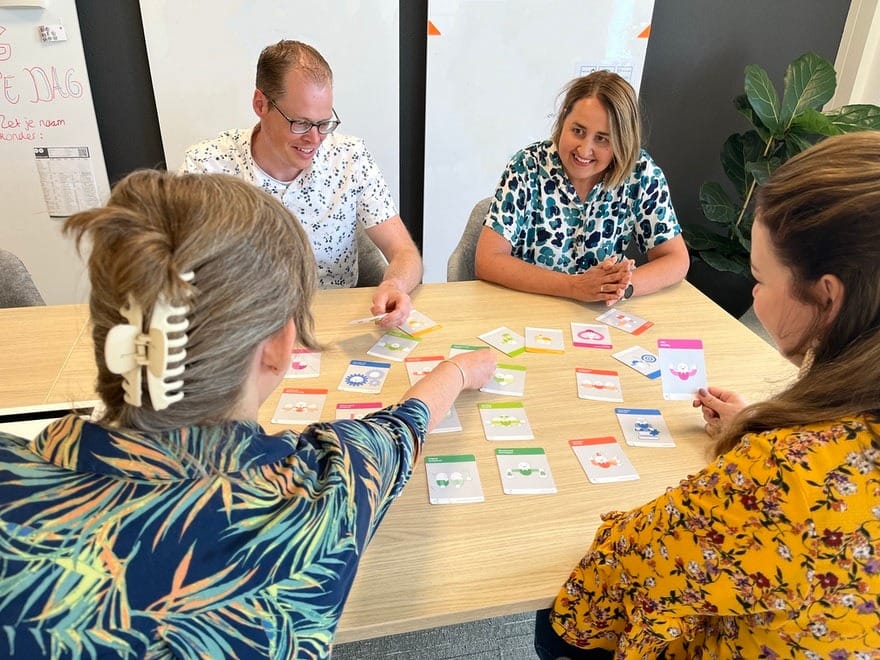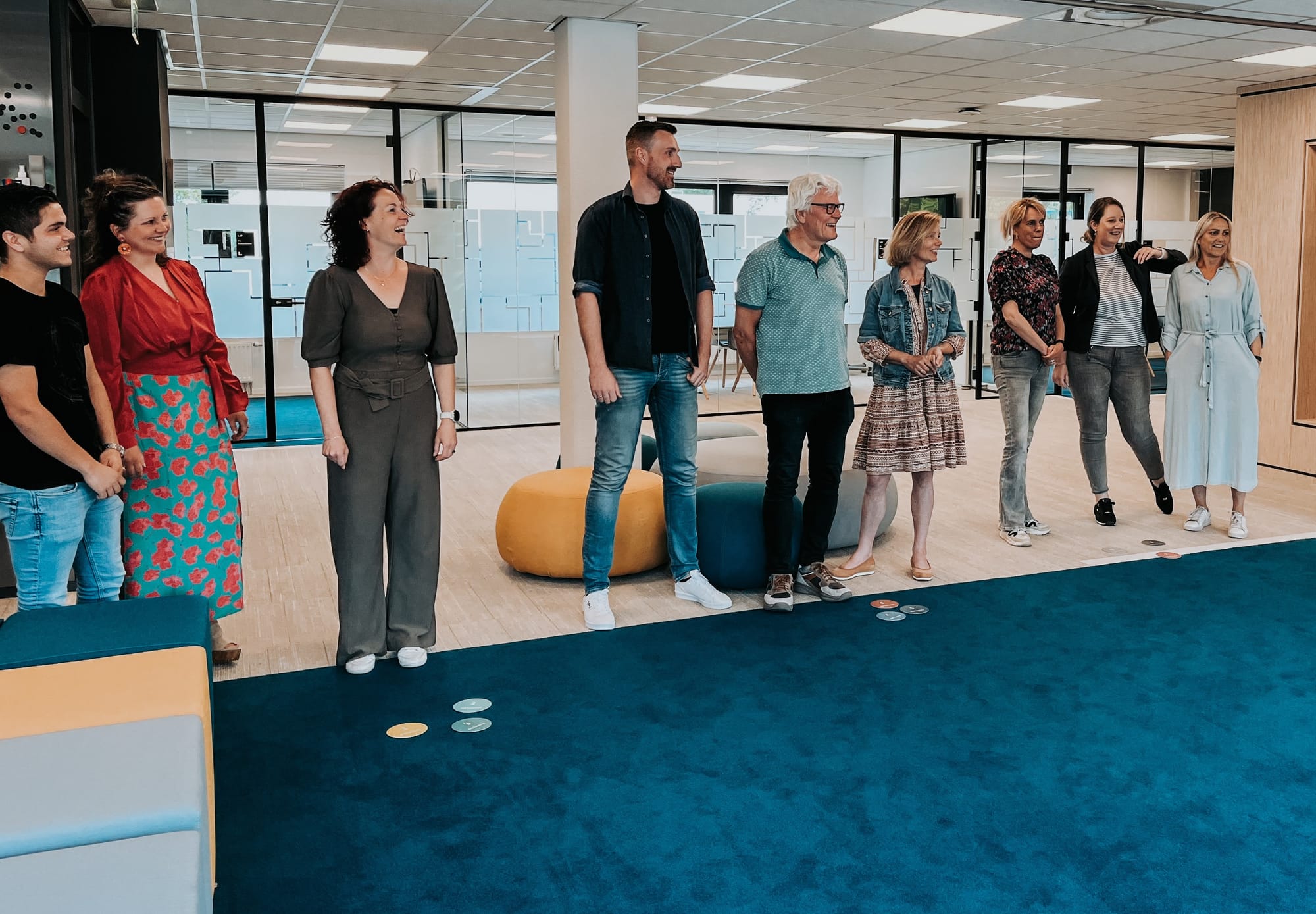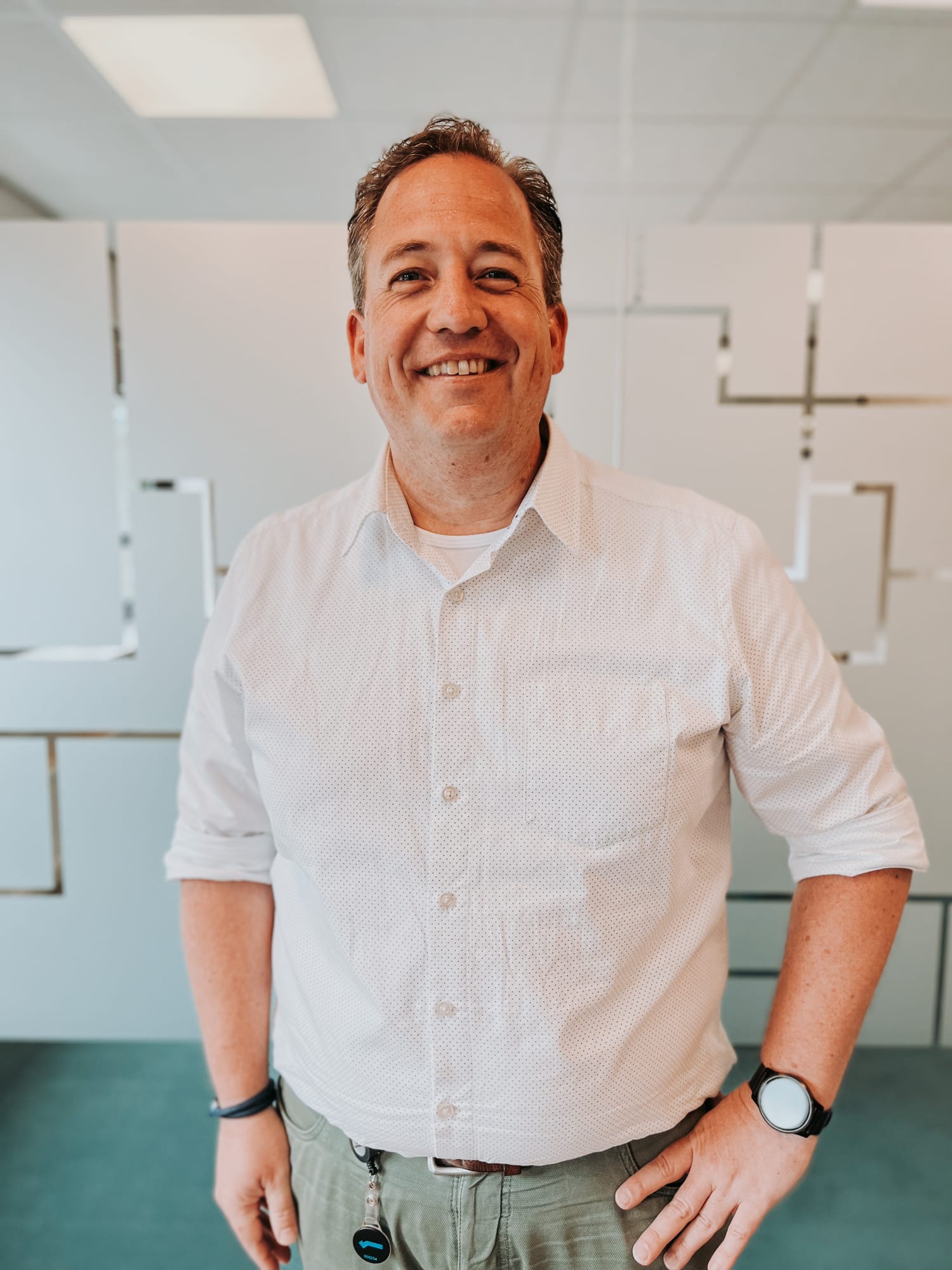Collaboration is a crucial theme within GBTwente. "That's why we've chosen five collaboration skills for which we organize training sessions," says Keur. "One of the skills is to be aware of yourself and others. During a training session, we have different employees share something about themselves in groups by describing their talents in their own words. Then, we explore how they can help each other. Everyone is unique, even people with the same talent because, for example, they may have different motivations behind them.
We also consider the dynamics that can arise when you don't know each other's talents. This can lead to friction. Knowing each other's talents means that you can collaborate better."
Focus on Individual Qualities
In all training sessions and workshops, the link is made with 'individual qualities'. This is possible because almost everyone within the organization - about 110 employees - has now completed a TMA. It's not mandatory, Keur explains. "I don't believe it works if you force it upon people. In fact, I think it made it easier for people to participate because we didn't make it compulsory, and only those who wanted to undergo a TMA Talent Analysis. The momentum started to build naturally as people began sharing their talents with each other, sparking curiosity in others. The number of people who still truly don't want to participate is very small. Some have even completed a second analysis."
All employees have access to their own analysis, and GBTwente hopes to create ownership. "People can now see for themselves where they have room for improvement. They can see where they can invest their energy and what they'll gain from it. They often can also better articulate what bothers them because it's in black and white. For example, when it's busy on the work floor they prefer to work in a focused manner. People dare to communicate more openly and honestly with each other, leading to more understanding. What's also great is that I receive requests for team sessions directly from the teams themselves, without the manager deciding it's necessary. Team members themselves can see when something isn't going smoothly and want to address it."
Future Goals
Manager Bart Lassche, like Keur, is a TMA Professional within the organization, but he doesn't conduct TMA conversations. Keur explains that this is a deliberate choice. "The added value of his certification is that he is now familiar with TMA and thus speaks the same language. When he conducts development conversations, he can recognize talents, motivations, and pitfalls and delve deeper into them. The entire management team has also undergone a team session, which was recorded and shared with the employees. This is motivating because it shows throughout the entire organization why we consider this important."
Implementing integral talent management takes time, Keur acknowledges. "But it leads to more job satisfaction. We have very low absenteeism rates, which means cost savings. Also, in the employee satisfaction surveys, we see that employees appreciate the attention we pay to training, development, coaching, and support."
The fact that so much is done internally at GBTwente is advantageous, according to Keur. Because of this, there are short lines of communication, enabling quick action. "And if we can't do it alone, we seek external help. This is how we work towards our future goal: the point where employees are ready to work anywhere but choose to stay here because they find GBTwente to be a great organization."
For more information on what TMA can mean for your organization, email m.vanraalte@tma.nl.


